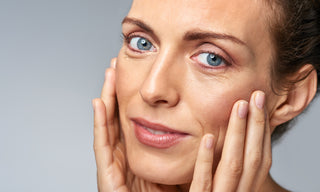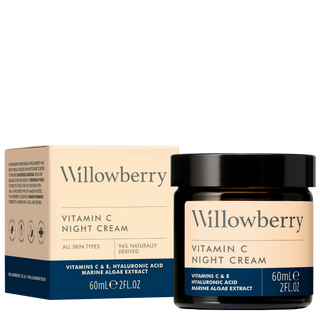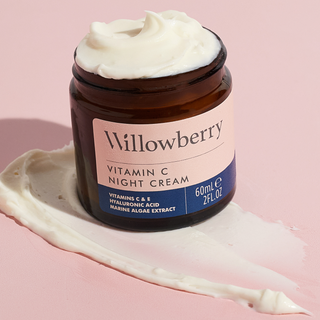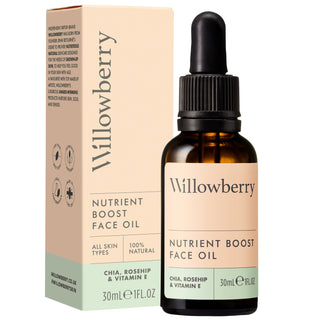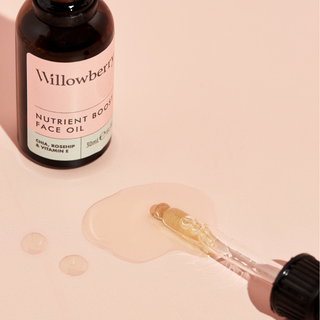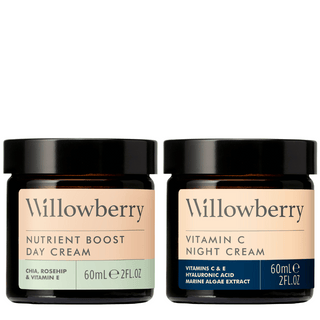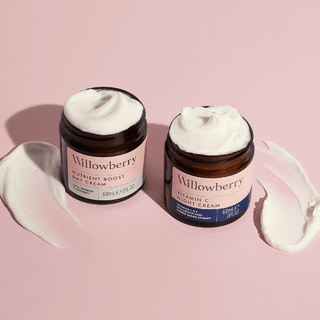Hormones have something of a bad reputation. Blamed for everything from mood swings to skin breakouts, they can sometimes seem like the gremlins of the body, the glitches in the system. Unfair? Yes, when you consider that they do lots of good too and are essential for our body’s functions, but during midlife we can feel very much at their mercy.
In a bid to understand them better, we put the spotlight on the three sex hormones – oestrogen, progesterone and testosterone – that begin to fluctuate around the time of the perimenopause, often in sporadic, jolting, ups and downs. A hormonal rollercoaster if you will.
Here, in simple terms, is what this means for your skin:
OESTROGEN
What it does: It plays a big part in puberty, regulates the menstrual cycle and supports pregnancy. It also supports the health of our bones, skin, tissues and heart, and can influence mood.
How fluctuating levels show in our skin: Oestrogen levels fluctuate during the perimenopause and decline after menopause. Dr. Shahzadi Harper, the Perimenopause and Menopause Doctor at The Harper Clinic, is a specialist in women’s health and an expert on peri/menopause. (Shahzadi is also co-author of The Perimenopause Solution.) She explains, “This decline in oestrogen affects our collagen. We lose collagen steadily by 1-2% per year and more dramatically post menopause”. This results in thinner, drier skin and a loss of elasticity and firmness, as both collagen and elastin levels drop. Lines and wrinkles become more visible as a result. Our complexions can also become more sensitive, prone to irritation and redness, and slower to heal.
What your skin needs: Nourish the skin with a hydrating cleanser that won’t strip the skin or disrupt its protective barrier. Be vigilant about applying moisturiser twice a day: keeping hydration levels topped up will reinvigorate lacklustre skin.
We recommend: Formulated for grown-up skin, our Willowberry range takes into account the needs of midlife. Made with nutritious natural ingredients to protect skin’s natural barrier function, it is bursting with skin-loving vitamins, antioxidants and essential fatty acids. Our Willowberry Nutrient Boost Cleansing Balm offers a deep clean that nourishes and hydrates to promote a smooth, bright complexion. Follow up with Willowberry Nutrient Boost Day Cream which hydrates, plumps, smooths and helps skin to a healthy-looking glow.
Don’t forget your hands and body can lose moisture and become drier, too. Our Willowberry Indulgent Hand & Body Lotion is enriched with shea butter and sweet almond oils, delivering hydration without residue.
PROGESTERONE
What it does: This one is our calming hormone, helping to soothe anxiety and promote restful sleep.
How fluctuating levels show in our skin: Often the first hormone to start dropping off, Dr Harper confirms that, “Progesterone levels steadily decline from early perimenopause, affecting sleep”, even to the point of insomnia in some women. Not getting enough sleep can cause skin to look dull and lacklustre. You may also notice more spots as hormonal acne, caused by the imbalance of oestrogen and progesterone, causes skin to break out.
What your skin needs: Balanced care that won’t trigger sensitised skin. Make sure your skin is cleansed regularly and thoroughly, avoiding harsh products that can strip the skin and exacerbate imbalance.
We recommend: If your skin is sensitised, opt for skincare designed specifically for sensitive skin. Our Willowberry Sensitive Face Oil contains the gentlest natural oils that are loaded with vitamins, essential fatty acids and antioxidants to nurture, calm and care for skin.
TESTOSTERONE
What it does: Traditionally thought of as a ‘male’ hormone, women produce testosterone too. It contributes to a whole range of physical and mental functions including bone and muscle strength, mood and sex drive.
How fluctuating levels show in our skin: While oestrogen levels start to decline in perimenopause, testosterone levels remain fairly constant (until later into menopause), so the balance is tipped. This testosterone dominance can lead to excess sebum production, oily skin and blocked pores.
What your skin needs: The myth that oily skin needs to be stripped of its oil actually has the opposite effect, encouraging skin to produce more oil in response. After gentle cleansing, apply an ultra-light, natural face oil to help balance sebum production.
We recommend: Our Willowberry Nutrient Boost Face Oil, designed especially for grown-up skin, is ultra-light and easily absorbed.
Dr Harper believes in a holistic approach when it comes to dealing with the effects of midlife hormone fluctuation and that lifestyle choices play a big part. Her go-to checklist of things to keep in mind at this time include: “Eat a balanced diet, hydrate, facial massage, change your skincare to reflect changing bodies and hormones, meditate, practice mindfulness, rest and de-stress.”
Willowberry is nutritious natural skincare for grown-ups, for your best skin.
A favourite with top make-up artists, Willowberry's luxurious award-winning products protect skin’s natural barrier function, to nourish and revive grown-up skin without telling women to be 'anti-ageing'.
As seen in Vogue, Independent, The Telegraph, This Morning and more.

